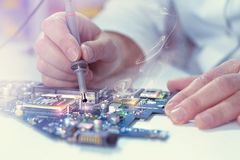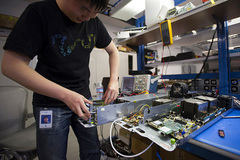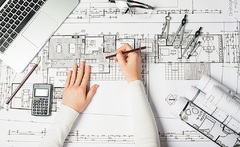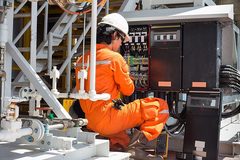Processing Request...
Processing Request...


Aerospace engineers design aircraft, spacecraft, satellites, and missiles. In addition, they test prototypes to make sure that they function according to design.
Learn More

Chemical engineers apply the principles of chemistry, biology, physics, and math to solve problems that involve the production or use of chemicals, fuel, drugs, food, and many other products. They design processes and equipment for large-scale safe and sustainable manufacturing, plan and test methods of manufacturing products and treating byproducts, and supervise production.
Learn More

Civil engineers design, construct, supervise, operate, and maintain large construction projects and systems, including roads, buildings, airports, tunnels, dams, bridges, and systems for water supply and sewage treatment.
Learn More

Computer hardware engineers research, design, develop, and test computer systems and components such as processors, circuit boards, memory devices, networks, and routers. By creating new directions in computer hardware, these engineers create rapid advances in computer technology.
Learn More

Drafters use software to convert the designs of engineers and architects into technical drawings and plans. Workers specialize in architectural, civil, electrical, or mechanical drafting and use technical drawings to help design everything from microchips to skyscrapers.
Learn More

Electricians install and maintain electrical power, communications, lighting, and control systems in homes, businesses, and factories.
Learn More

Environmental engineers use the principles of engineering, soil science, biology, and chemistry to develop solutions to environmental problems. They are involved in efforts to improve recycling, waste disposal, public health, and water and air pollution control.
Learn More

Geological and petroleum technicians provide support to scientists and engineers in exploring and extracting natural resources, such as minerals, oil, and natural gas.
Learn More

Health and safety engineers develop procedures and design systems to prevent people from getting sick or injured and to keep property from being damaged. They combine knowledge of systems engineering and of health and safety to make sure that chemicals, machinery, software, furniture, and other consumer products will not cause harm to people or buildings.
Learn More

Hydrologists study how water moves across and through the Earth’s crust. They can use their expertise to solve problems in the areas of water quality or availability.
Learn More

Industrial designers develop the concepts for manufactured products, such as cars, home appliances, and toys. They combine art, business, and engineering to make products that people use every day. Industrial designers focus on the user experience in creating style and function for a particular gadget or appliance.
Learn More

Industrial engineers find ways to eliminate wastefulness in production processes. They devise efficient ways to use workers, machines, materials, information, and energy to make a product or provide a service
Learn More

Materials engineers develop, process, and test materials used to create a range of products, from computer chips and aircraft wings to golf clubs and snow skis. They work with metals, ceramics, plastics, composites, and other substances to create new materials that meet certain mechanical, electrical, and chemical requirements.
Learn More

Mechanical engineering is one of the broadest engineering disciplines. Mechanical engineers design, develop, build, and test mechanical and thermal devices, including tools, engines, and machines.
Learn More

Mining and geological engineers design mines for the safe and efficient removal of minerals such as coal and metals for manufacturing and utilities.
Learn More

Occupational health and safety specialists analyze many types of work environments and work procedures. Specialists inspect workplaces for adherence to regulations on safety, health, and the environment. They also design programs to prevent disease or injury to workers and damage to the environment.
Learn More

Petroleum engineers design and develop methods for extracting oil and gas from deposits below the earth’s surface. Petroleum engineers also find new ways to extract oil and gas from older wells.
Learn More

Sales engineers sell complex scientific and technological products or services to businesses. They must have extensive knowledge of the products’ parts and functions and must understand the scientific processes that make these products work.
Learn More

Take our free psychometry test to discover your passion and potential!
Try It Now!

Book a campus tour through us!
Book Now!

Submit your result to Edumetry, and a list of scholarship that is eligible for your result will be filtered out for you!
Match Now!